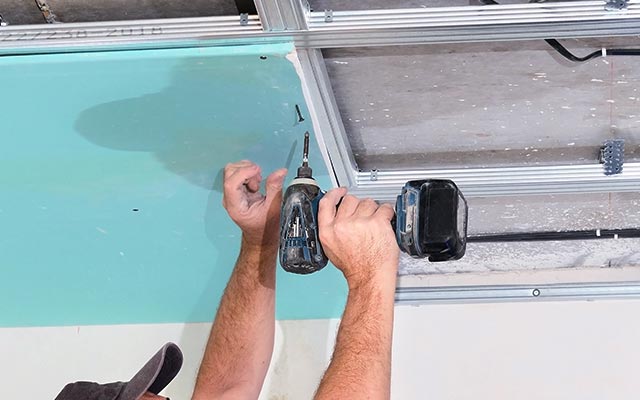What Makes Self Tapping Screws the Reliable Fastening Solution?
2025-09-18
Fastening systems are the foundation of construction, manufacturing, and countless everyday products. From assembling furniture to building skyscrapers, the reliability of fasteners directly influences the durability, safety, and performance of the final product. Among the wide range of fasteners available, self tapping screws have become indispensable across industries because of their unique ability to form their own threads in materials during installation.
Unlike standard screws that require pre-tapped holes or the use of nuts, self tapping screws eliminate extra steps in the assembly process. They cut or form threads into materials such as wood, plastic, and metal, ensuring a secure fit without compromising structural strength. This makes them highly versatile, time-efficient, and cost-effective.
The demand for self tapping screws continues to grow as industries seek smarter fastening solutions that save labor, reduce costs, and increase productivity. Their widespread use can be found in automotive assembly, construction frameworks, electronics manufacturing, furniture production, and even household DIY projects.
What Are the Key Features and Technical Parameters of Self Tapping Screws?
Self tapping screws stand apart because of their engineering precision and adaptability. They are manufactured in various head styles, drive types, and materials, ensuring suitability across applications. To understand why they are trusted by professionals worldwide, it’s important to look closely at their defining features and specifications.
Key Features of Self Tapping Screws
-
Thread-Cutting and Thread-Forming Options: Thread-cutting screws remove material to create internal threads, while thread-forming screws displace material to form a tight fit without chips.
-
No Pre-Tapping Required: Unlike machine screws, they save time by cutting their own path during installation.
-
Versatility: Suitable for wood, plastic, thin sheet metal, and composites.
-
Secure Fastening: Offers excellent holding power even under vibration or thermal stress.
-
Multiple Head Styles: Pan, flat, hex, and countersunk heads allow design flexibility.
-
Durability: Available in stainless steel, carbon steel, and alloy steel for strength and corrosion resistance.
Technical Parameters of Self Tapping Screws
| Parameter | Options / Specifications |
|---|---|
| Material | Stainless steel (304, 316), carbon steel, alloy steel, brass |
| Surface Treatment | Zinc-plated, nickel-plated, black oxide, galvanized, phosphate |
| Thread Type | Thread-cutting, thread-forming, coarse, fine |
| Head Style | Pan head, flat head, hex head, countersunk, oval head |
| Drive Type | Phillips, slotted, hex socket, Torx, square drive |
| Size Range | Diameter: M2–M12; Length: 4 mm – 150 mm |
| Standards | DIN, ISO, ANSI, JIS |
| Applications | Construction, automotive, electronics, furniture, DIY projects |
The flexibility offered by this wide range of parameters allows engineers, builders, and manufacturers to select the right screw for any specific project requirement.
What Benefits Do Self Tapping Screws Offer to Different Industries?
The popularity of self tapping screws lies not only in their technical design but also in the tangible benefits they bring to multiple industries. Their ability to improve productivity while ensuring reliability makes them a preferred fastening choice worldwide.
Benefits of Using Self Tapping Screws
-
Time-Saving Installation
-
By eliminating the need for pre-drilling or tapping, assembly time is significantly reduced.
-
Ideal for high-volume manufacturing lines where speed is crucial.
-
-
Strong and Secure Fit
-
Creates a tight bond with the material, reducing the chance of loosening under stress.
-
Particularly valuable in automotive and aerospace industries where safety is paramount.
-
-
Cost Efficiency
-
Fewer tools and steps are needed, cutting overall labor and production costs.
-
Their durability reduces maintenance and replacement frequency.
-
-
Versatility Across Materials
-
Effective in metals, plastics, and wood.
-
Widely used in mixed-material applications like attaching metal to wood or plastic to steel.
-
-
Corrosion Resistance
-
Stainless steel and treated screws offer protection against harsh environments.
-
Essential in outdoor construction and marine industries.
-
Applications Across Industries
-
Automotive: Securing panels, dashboards, and mechanical components.
-
Construction: Roofing, drywall installation, and structural frameworks.
-
Electronics: Compact designs where precision fastening is required.
-
Furniture Manufacturing: Simplifying assembly and ensuring long-term stability.
-
Household DIY: Commonly used for home repairs, décor, and installations.
Common FAQs About Self Tapping Screws
Q1: What materials are best suited for self tapping screws?
A: Self tapping screws are highly adaptable and work effectively in wood, plastics, and thin metals. For harder metals like stainless steel plates, using a drill-assisted installation or pre-punching a small pilot hole may be required to prevent excessive torque.
Q2: What is the difference between self tapping screws and self drilling screws?
A: While both types create threads during installation, self drilling screws have a drill-like tip that eliminates the need for even a pilot hole. Self tapping screws may require a small pilot hole in harder materials, but they are generally more versatile and available in a wider range of configurations.
What Is the Future of Self Tapping Screws in Global Manufacturing?
As industries evolve with automation, sustainability, and smarter materials, self tapping screws are adapting to meet future demands. They are no longer viewed simply as fasteners but as critical components in engineering and design.
Emerging Trends in Self Tapping Screws
-
Advanced Coatings: New anti-corrosion and anti-galling coatings extend lifespan and performance in extreme conditions.
-
Precision Engineering: Tighter tolerances and advanced threading technology ensure compatibility with automated fastening tools.
-
Lightweight Materials: With the rise of lightweight metals and composites in automotive and aerospace sectors, self tapping screws are being re-engineered to match material properties without sacrificing strength.
-
Sustainability: Recyclable materials and environmentally friendly coatings are gaining attention to align with green manufacturing standards.
-
Integration with Automation: Screws designed for robotic assembly lines are increasing productivity and consistency in mass production.
Why Self Tapping Screws Will Remain Indispensable
Global industries will continue to rely on self tapping screws because of their unmatched combination of strength, adaptability, and cost-effectiveness. From small-scale DIY projects to large infrastructure development, they ensure efficiency while maintaining structural reliability.
At Runyee, we specialize in producing premium-quality self tapping screws designed to meet international standards and the evolving needs of industries worldwide. With a focus on durability, precision, and performance, our products provide reliable fastening solutions that stand the test of time.
For detailed specifications, customized solutions, or large-volume inquiries, contact us today and discover how Runyee can support your projects with fastening solutions you can trust.




























